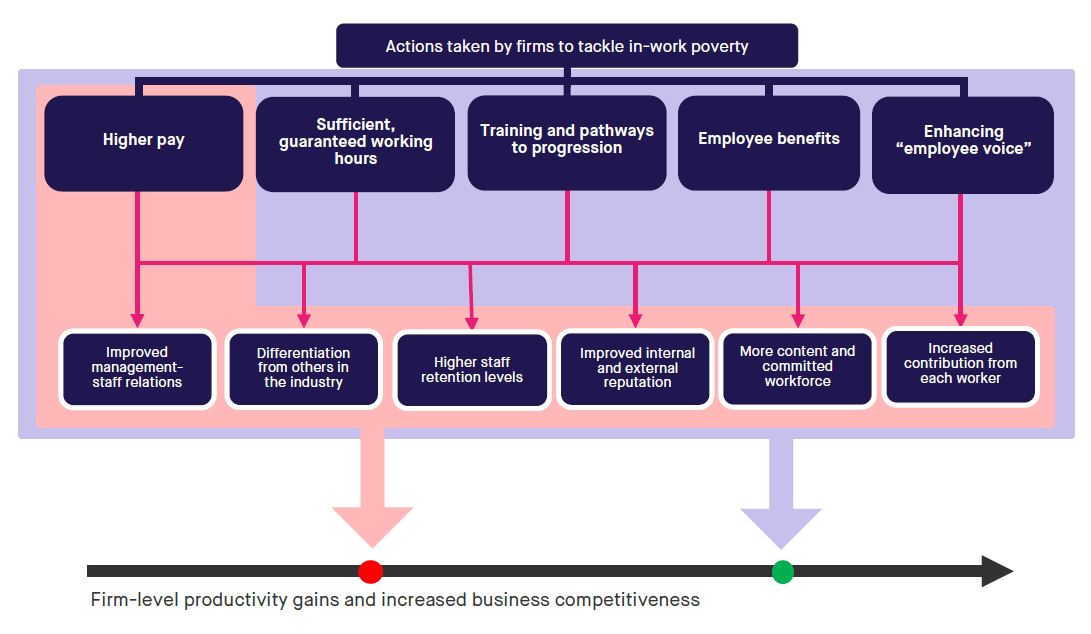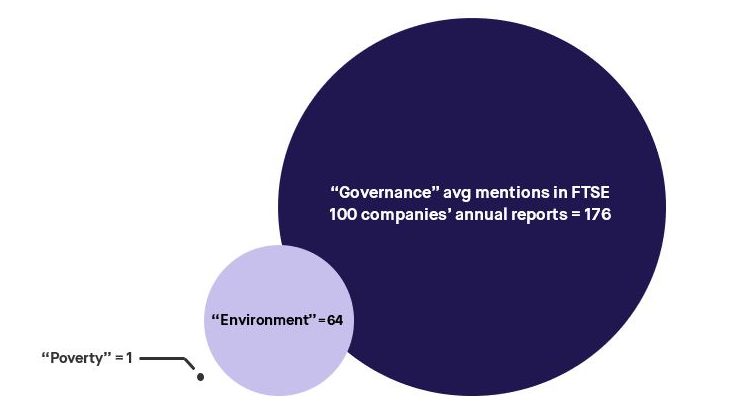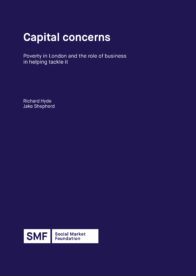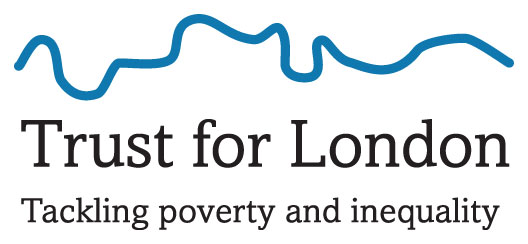This report calls attention to the scale of in-work poverty in the UK and London today, what drives it, and the impact it has. It is a part of a wider project – created in partnership with Trust for London – to develop a new benchmark that helps businesses tackle in-work poverty.
In order to help London businesses that want to take action and encourage more businesses to take similar actions, we argue for the development of a new metric that can help incentivise firms to identify and engage in better business practices, which in-turn, can help tackle poverty in the capital.
Poverty in the UK
- There were estimated to be 14.4 million people – including 8.5 million working-age adults and 4.5 million children – in poverty in the UK before the COVID-19 pandemic.
- The events of 2020 and 2021 are expected to have added more than 600,000 working-age adults to the poverty total.
In-work poverty in the London
- In-work poverty has become particularly acute in London where, for example, the proportion of London households in poverty – where at least one adult works full-time – has risen by 50% in a decade. The data suggests that three-quarters of the children in poverty in the capital – more than half a million – are living in working households.
- This growth has been driven by a range of factors, including:
- Slower wage growth for poorer workers in the capital compared to those in other parts of the country.
- Substantial numbers of the London workforce being employed in low-wage, low-skill occupations
- Poor terms and conditions of employment, including inadequate protections and limited access to additional “workplace benefits” such as adequate sick pay and pensions.
- A high cost-of-living due – in no small part – to housing costs, although transport and other financial factors linked to being in London contribute, too.
London-based businesses care about poverty
- 79% of London employers agree that “poverty is an issue that impacts the people in the capital”.
- 39% estimate that half or more of their workforce are “directly affected” by poverty.
- 84% say that “in-work poverty (among their own workers) should be a concern to London businesses”.
- 70% say they are motived to help tackle in-work poverty in the capital by taking voluntary measures above and beyond legal minimums – such as paying the National Living Wage.
Why firms in the capital care about poverty
The most frequently stated motivation for employers caring about poverty among their own workforce for example, and professing a willingness to take steps to help alleviate it, was that such actions would be “doing the right thing”. However, there is copious evidence that many of the measures enterprises can take to reduce the incidence of poverty among their staff can also generate multiple commercial benefits for such enterprises. The key ones are illustrated in Diagram 1.
Diagram 1: Commercial benefits from tackling in-work poverty

Source: SMF
Public opinion on how business should treat workers
- There is substantial public support for companies that prioritise looking after their workers. For example, 65% of the public said that “poor treatment of employees” was the kind of business behaviour that “concerned them”.
- The same proportion of the public said that “staff pay and conditions” should be a key priority for managers in big companies.
The Environment, Social and Governance (ESG) focus of large London-based employers
- 97% of larger businesses in the capital say that ESG issues are “important” to their business.
- 61% of those bigger firms in London who said ESG is “important”, report that the “environment” is a “focus of their current ESG efforts”.
- 26% reported prioritising in-work poverty in their own workforce as one of the focusses of their ESG activity.
The ESG focus of FTSE 100 firms
- Analysis of the latest annual reports of the FTSE 100 found an even starker difference in the amount of emphasis placed on governance and the environment compared to poverty, by the UK’s biggest companies. Diagram 2 illustrates that difference by highlighting the average number of times key ESG terms appear in the most recent annual reports of FTSE 100 corporations.
Diagram 2: Average number of mentions of key ESG terms, in FTSE 100 annual reports

Source: SMF
A new benchmark can help incentivise London businesses to prioritise poverty
- Two reasons why workforce poverty isn’t a topic many businesses focus upon as part of their ESG activities, are:
- The immediate incentives to encourage such interest are not in-place.
- The potential longer-term commercial benefits of implementing measures (which can directly help reduce in-work poverty) have not always been clear and widely understood.
- ESG standards, kitemark, codes of practice and benchmarks can help incentivise change in business behaviour, in positive ways. London-based businesses acknowledge this, with 68% holding or adhering to at least one ESG standard, code of practice, kitemark or benchmark and 90% agreeing they “add value”. The popularity of such tools – among London businesses makes the development of a poverty-focused one a potentially useful mechanism for encouraging employers in the capital to help in the fight against poverty.
- Over time, the widespread take-up of such a tool could help shift the current ESG focus of many businesses towards poverty.
Towards a New Benchmark
The SMF is looking to design a new poverty benchmark that will enable businesses to demonstrate what measures they are taking to help reduce poverty among their own workforces, in the communities around their main London business operations and by those working in their local supply chains.
The SMF welcomes the ideas and observations of businesses, relevant civil society groups, academics, practitioners, and others on this research, the wider project, and its objectives. We encourage those who are interested in this issue to contact us via director@smf.co.uk to be part of this conversation.


